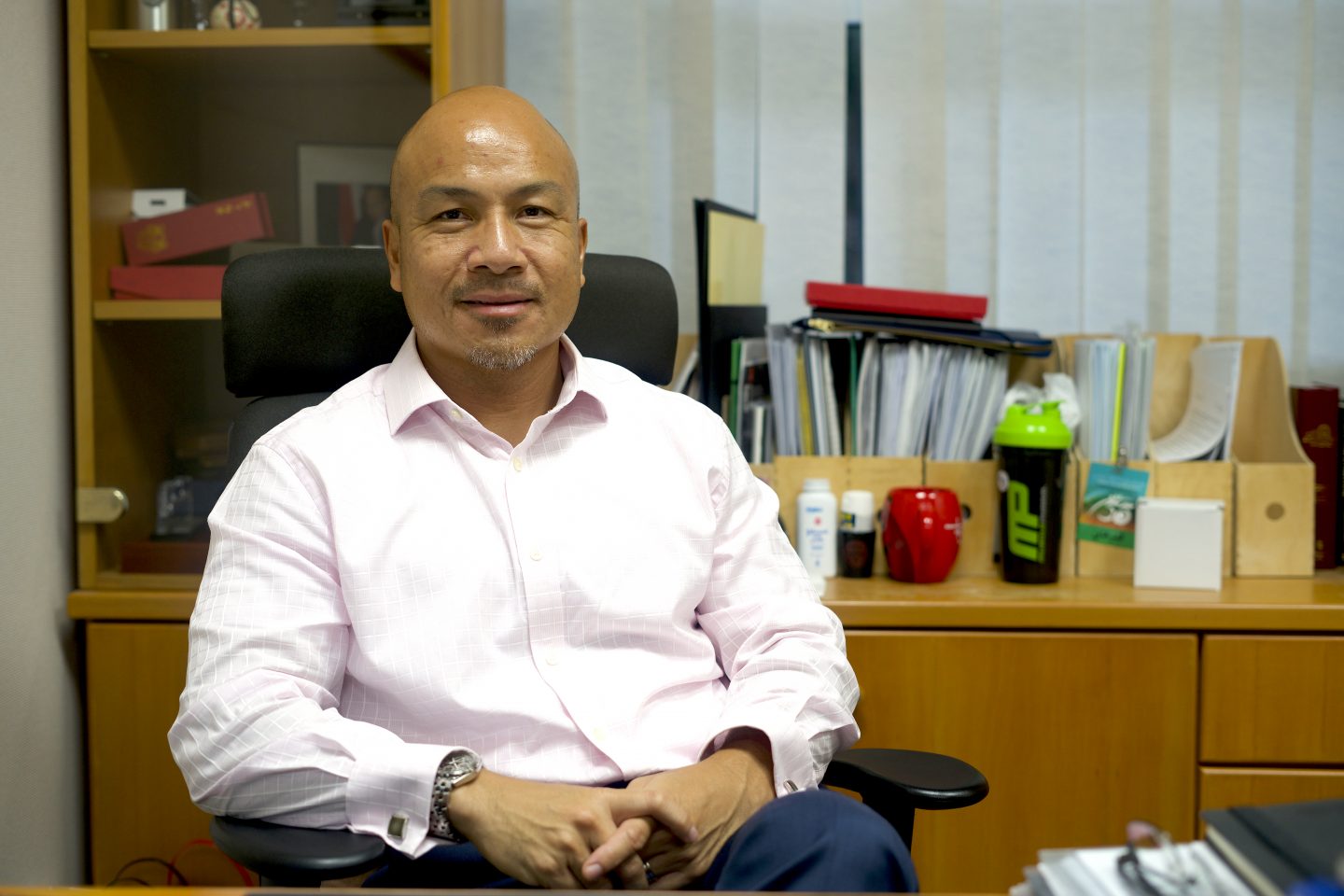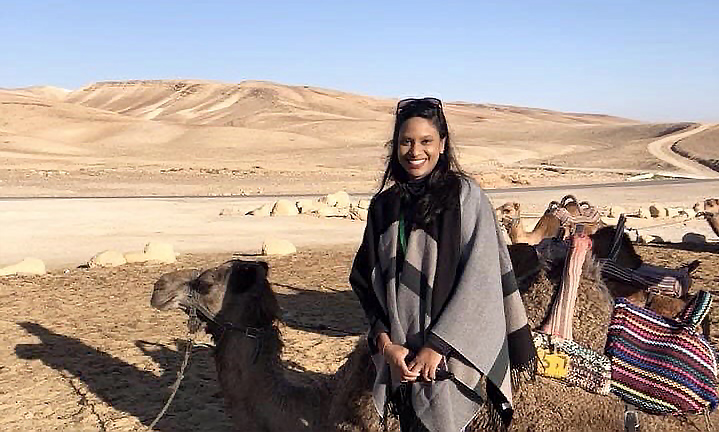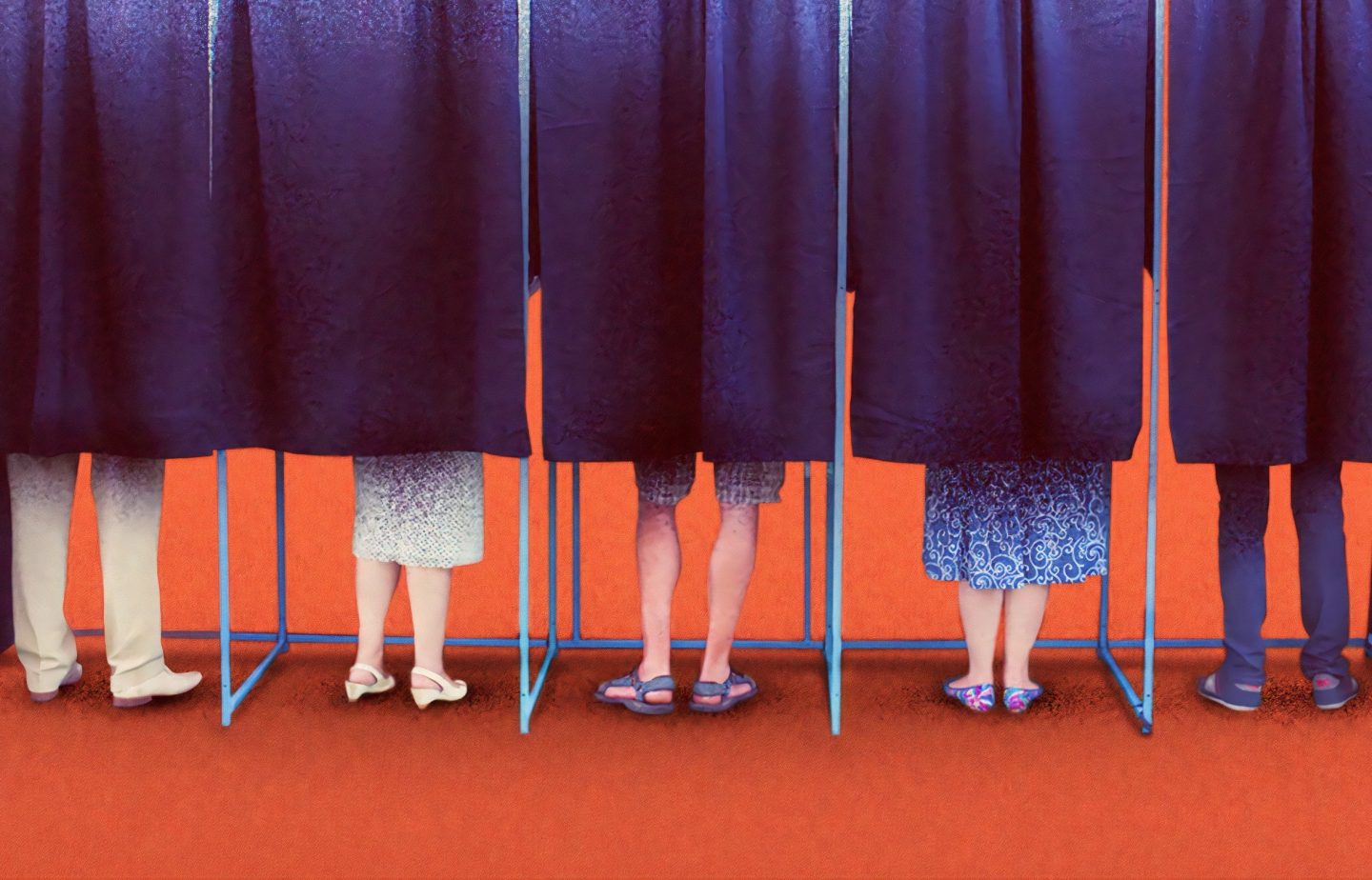Seeing God in war and peace: International relations expert Dr Joseph Liow
by Rachel Phua // June 5, 2018, 6:57 pm

Dr Joseph Liow is the dean of Nanyang Technological University's S Rajaratnam School of International Studies, where he teaches comparative and international politics. Photo by Rachel Phua.
Inside this basement office at Nanyang Technological University, words like “nationalism” and “terrorism” catch your eye as you scan the lines of books in the overflowing bookshelves.
Dr Joseph Liow sits calmly in front of his computer, as leaves rustle outside his window. It is a place of serenity, a haven from the turmoil he studies: Political corruption, religious extremism, trade wars, riots and armed clashes.
The 46-year-old is a full professor in comparative and international politics at the S Rajaratnam School of International Studies, where he is dean. Despite the constant stream of bad news, he has yet to be fazed. It seems the Bible has prepared him well for his job.
“International affairs is very much about conflict, and conflict is an expression of man’s vanity, where we try to conduct ourselves without the Word,” Dr Liow says, noting that we live in a selfish and anarchic – “godless” – world today, full of suspicion and hostility towards one another.
He cites the example of war. Some may never understand why countries would prefer bloodshed instead of peace, but Genesis 3 makes the answer obvious. “We’ve been warring since Adam and Eve got booted out of the Garden of Eden, and we will continue warring until the kingdom comes.”
It is this faith-tinted lens that has helped inform Dr Liow’s work, with areas of interest in Asia-Pacific security issues and Southeast Asian politics. He may not be able to quote Scripture in his research, but revealing man’s fallen nature (Romans 5:12) is key to his job. It also keeps him from unfounded optimism about man’s effort to sustain peace and yet gain power for themselves.
“I don’t bring in my faith in an explicit way in my works, because some people don’t believe in Scripture, but I write based on certain assumptions that I have, which are informed by my faith.
“I point out the fact that conflict, hostility, pride and vanity are recurring themes throughout human history, among individuals, societies, and countries.”
“Conflict, hostility, pride, and vanity are recurring themes throughout human history.”
God’s sovereignty (Romans 11:33) and victory (Isaiah 9:7) are biblical principles the political scientist believes in.
However Dr Liow is cautious about “spiritualising” every major world event, such as the potential Korea reunification and the upcoming talks between North Korea and the US in Singapore on June 12.
“We believe the Lord is in control of everything, and nothing comes to pass that is not in his control. But Jesus also made it very clear that he’s not concerned about the kingdoms of this world (1 John 2:15-17, John 18:36).
“If you get into a discussion of, ‘Oh this one is ordained by God, that one isn’t ordained by God’, your entire life will be about trying to anticipate God. He cannot be anticipated.”
Still, this is no excuse for believers to be fatalists, says Dr Liow, especially if we are made in God’s image (Genesis 1:27) and called to be responsible stewards of creation (1 Corinthians 3:9, James 2:17).
Why should Christians care about politics?
The dean of RSIS says he is grateful that his position allows him to have frequent interactions with policymakers. He is able to share research ideas that could help formulate new policies, and hopefully make life better for millions of people.
But why should we care about what is happening beyond our borders?
Dr Liow says the study of global affairs is significant to every believer. He even recommends that Christians read books about other religions. Dr Liow himself is an expert in Muslim politics.
For one, we are “called to spread the Gospel to the ends of the earth” (Mark 16:15), and it is only possible to talk to foreigners and immigrants in Singapore by understanding their culture.
Learning about different customs and values helps Christians exercise empathy as well, particularly if we want to love our neighbours in what is a “me-me-me world” today, he adds. Being a disciple is about wrestling with our human nature.
“Learning about different customs and values helps Christians exercise empathy, especially in a self-centred world today.”
“Empathy is a very important trait. What is the shortest passage in the Bible? It is that ‘Jesus wept’. He empathised with the people around him, including non-believers.
“In 1 Peter 3:15, Peter wrote that we must always be ready with an answer for the hope that is in us. This is a very personal instruction for you to be ready to relate to others, and then explain your faith. This is international affairs for Christians, just on a smaller scale.”
The allure of fame
Dr Liow, who is also a senior fellow at the American public policy think tank Brookings Institution, says that the greatest challenge in his work does not lie in coming up with the brightest ideas, but in resisting the limelight.
Papers are written to prove how other researchers’ concepts are wrong, while yours is the most creative and accurate, he explains. And then if it is truly enlightening, people cite it in their own work – basically announcing “how great you are”.
“And truth to be told, it goes to your head.
“I am always trying to be careful about falling into that trap, although I probably have failed miserably over and over again,” he laughs.
The son of an Anglican mother says it was only during his early days as an undergraduate in the US that he took his faith seriously. Before that, Christianity was just about “going to church”.
He was studying at the University of Wisconsin-Madison then. One Sunday, after waking up too late for service at his Episcopal church, he wandered into the Reformed church next door. They were singing hymns and psalters.
“The power and meaning in the words struck me.”
He continued turning up at service, with a newfound enjoyment of the austere. The sermons, with a heavy focus on theology, appealed too to his bookish personality.
Back in Singapore, he found a home at First Evangelical Reformed Church, where he has since served as a deacon and elder, and finds comfort in the writings of Jonathan Edwards, RC Sproul, Dietrich Bonhoeffer and the likes.
Meanwhile, the academic wrote and edited 14 books and worked both as an professor and a political risk and policies consultant for several multinational companies, while raising two children.
He chuckles as he quotes Martin Luther when asked how he balances his commitments.
“I have so much business I cannot get on without spending three hours daily in prayer.”
And then he remembers we have a rational, yet supernatural, God.
“I do believe that if you are genuinely intending, with all your character flaws, to serve the Lord, He will find you that time and energy. If you are labouring for God and you ask for strength, he won’t make you even more tired.”
We are an independent, non-profit organisation that relies on the generosity of our readers, such as yourself, to continue serving the kingdom. Every dollar donated goes directly back into our editorial coverage.
Would you consider partnering with us in our kingdom work by supporting us financially, either as a one-off donation, or a recurring pledge?
Support Salt&Light



